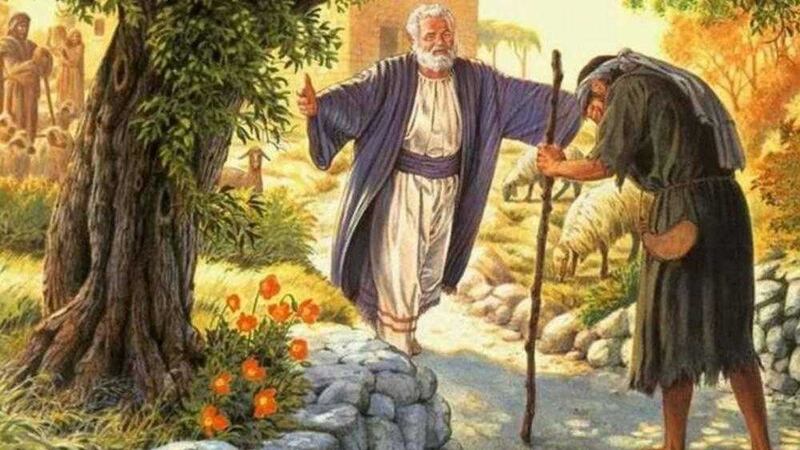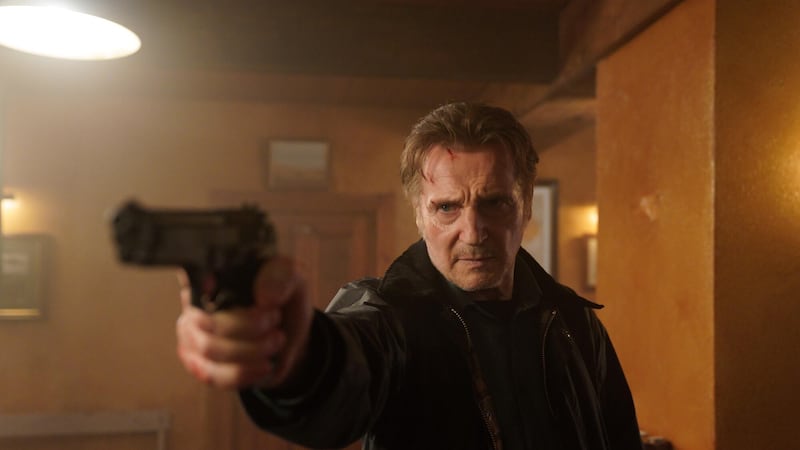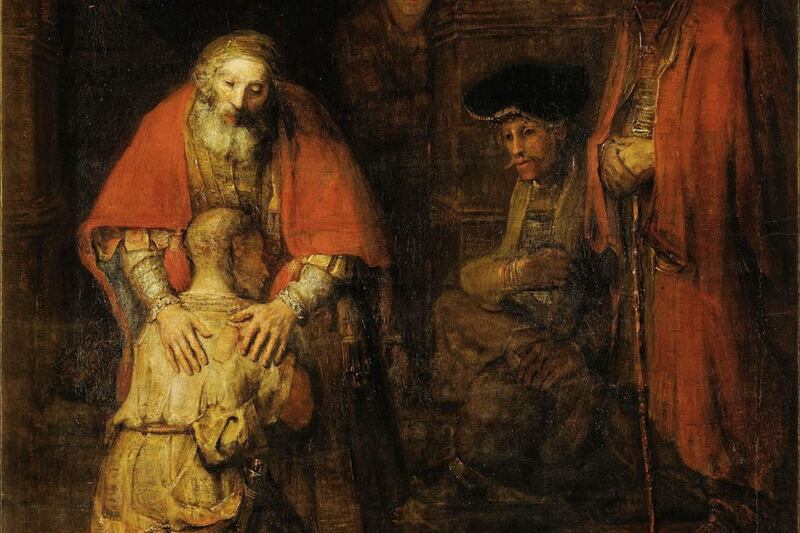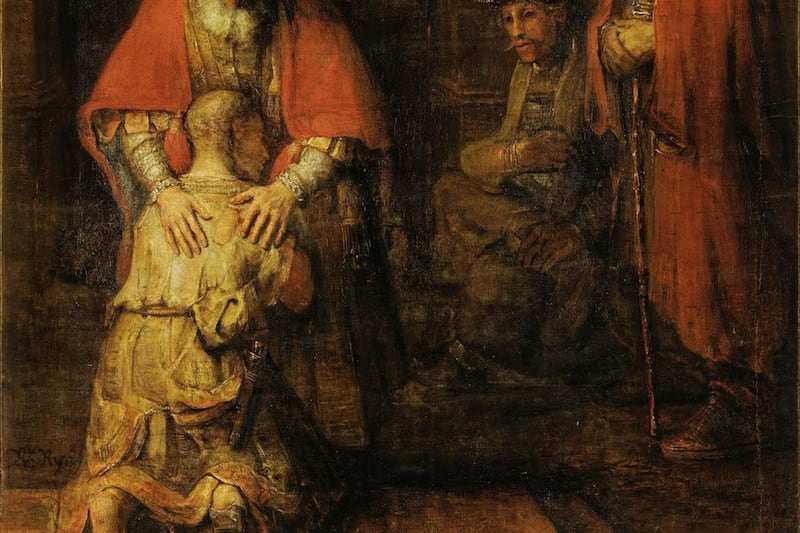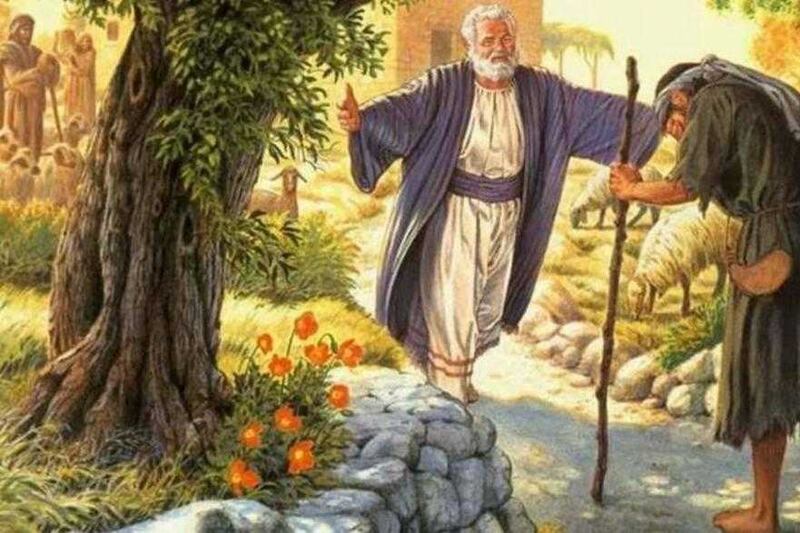For the Year of Mercy - decreed by Pope Francis to run from December 8, 2015 until November 20, 2016 - the figure of the Prodigal Son is frequently cited as the example par excellence of divine mercy in the New Testament.
The parable of the Prodigal Son itself is probably the single best-known parable in St Luke's Gospel and has often been celebrated in art, most notably perhaps by Rembrandt in his famous painting The Return of the Prodigal Son, now in the Hermitage Museum in Saint Petersburg.
And yet one thing at least in the parable might strike us as a bit odd when our attention is drawn to it. And it is that in the family of the Prodigal Son, we learn only about the Prodigal himself, his elder brother and his father, but there’s no mention at all of his mother. It’s almost as if she didn’t count.
And in fact the only mention of women at all in the whole story is quite negative. This is the reference to the women with whom the Prodigal is said to have squandered his father's inheritance. It is made explicitly and pejoratively by the elder brother when he confronts his father towards the end of the story and criticises him for celebrating the Prodigal's return so lavishly, after he had squandered his father's property "with prostitutes", as the elder son harshly and mercilessly puts it.
What are we to make of such elements in the famous parable of the Prodigal Son? What are we to make of the fact that the Prodigal's mother isn't mentioned at all, and that women as such are only mentioned in a derogatory sense? And, furthermore, what are we to make of the elder son's mean-spirited reaction to the Prodigal's return?
The question regarding the Prodigal Son's mother is no doubt impossible to answer. The fact that the Prodigal's mother is given no consideration at all in the story may be due to the probability that in the society in which this story was first told, women seemingly had little or no say in questions of property. So the Prodigal's mother wouldn't have been involved in settling her son's inheritance.
But it's still strange nevertheless that the mother doesn't even appear when her younger son returns. Perhaps she was already deceased. We'll never know. And it might not affect our understanding of the parable very much, even if we did know.
Our understanding of the parable could perhaps be more realistically guided by a consideration, not oddly enough of the concept of mercy itself, for all its importance, but by reflecting on the simple fact that the story begins rather unhappily, continues even more unhappily, and ends, despite the joyful feast to celebrate the Prodigal's return, on a sour note.
The story begins on a discordant note, with the younger son's impetuous departure from his home with no idea really of where he's going or what he's going to do with his life. It continues even more unhappily by the Prodigal's life of waste in a distant land, where he eventually becomes totally destitute. And the story ends with the Prodigal's father, who thought one of his problems was solved when his younger son returned home, gaining a brand new problem in the shape of the smouldering resentment that the return of the Prodigal son has bred in the elder son.
Whether this trail of unhappiness is all the fault of the men in the story, whether it is due to the fact that they don't appear to allow women any decisive role in organising life, is a question to which there is probably no simple answer. But maybe it's more important to accept that, as it stands, the parable of the Prodigal Son still contains a truth that appears to be valid for all of us and for all situations, namely that human beings don't seem to be able to organise life in such a way as to recreate paradise or achieve perfect happiness on earth.
All human organisations and institutions and structures and even cultures and civilisations break down at some point. None can lay claim to being the kingdom of heaven in its eternal fullness, for all that they can certainly give important glimpses into it.
For this reason, Christian faith teaches that the kingdom of heaven is greater than anything we can ever find or attain on earth. For it involves sharing in the life of God himself who continually creates and who therefore is always more than and, vitally, other than this world.
The parable of the Prodigal Son doesn't, then, so much appear to present us first and foremost anyway with the symbol of a loving, merciful God, in the person of the Prodigal's father, important though this dimension of the story clearly is. Rather, the parable holds up a kind of mirror to us in which we can see the continuing, frustrating limitations of human life.
But, in turn, those same limitations point beyond themselves to God, without whom they wouldn't exist. And God, as their ultimate source, is also the ultimate power that can be trusted to take us one day finally beyond all the limitations of this life and let us enjoy the fullness of the divine life in the kingdom of heaven, with all those who have gone before us, marked with the sign of faith.
:: Martin Henry is a former lecturer in theology at St Patrick's College, Maynooth and a priest of the diocese of Down and Connor.
